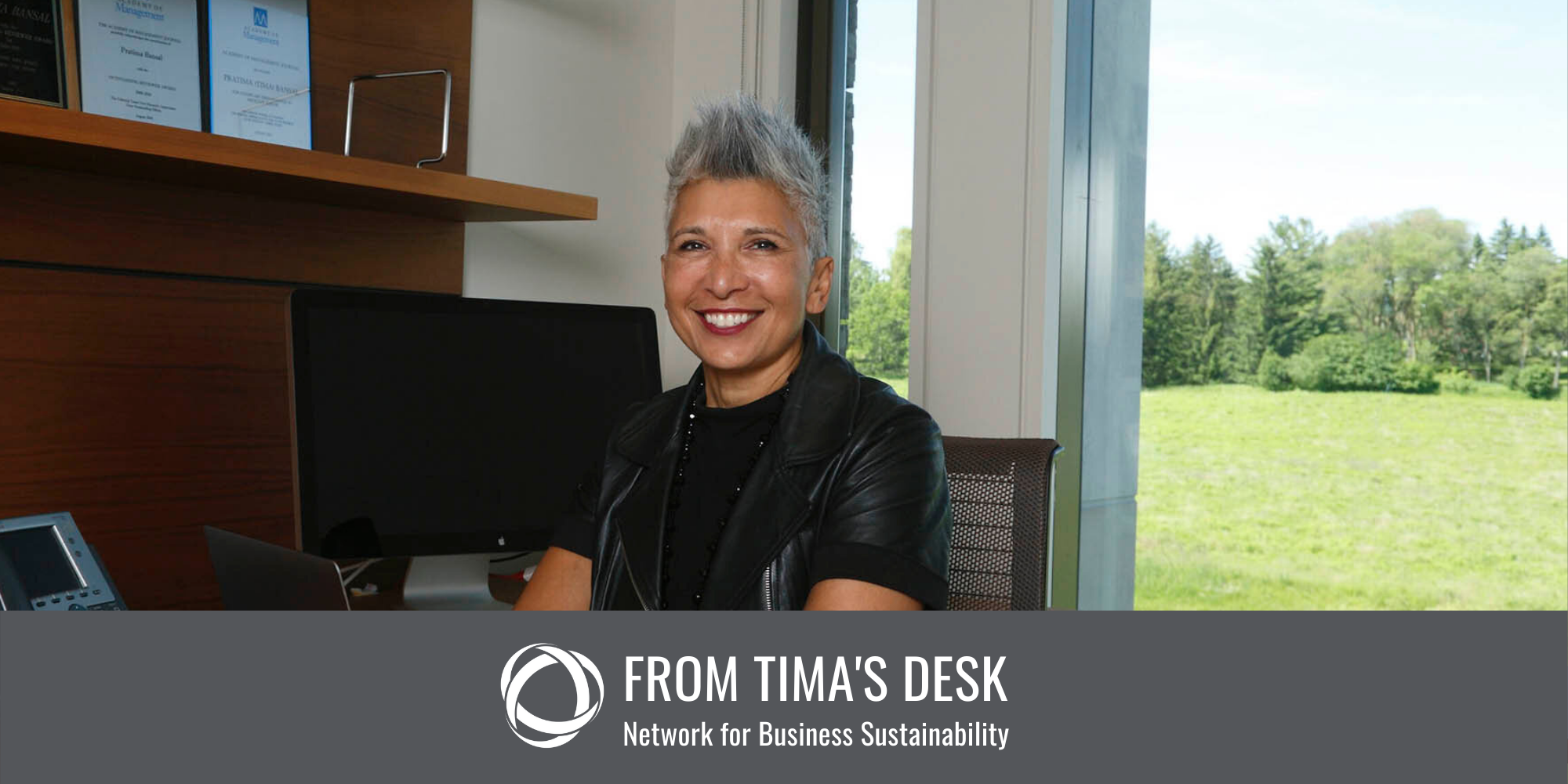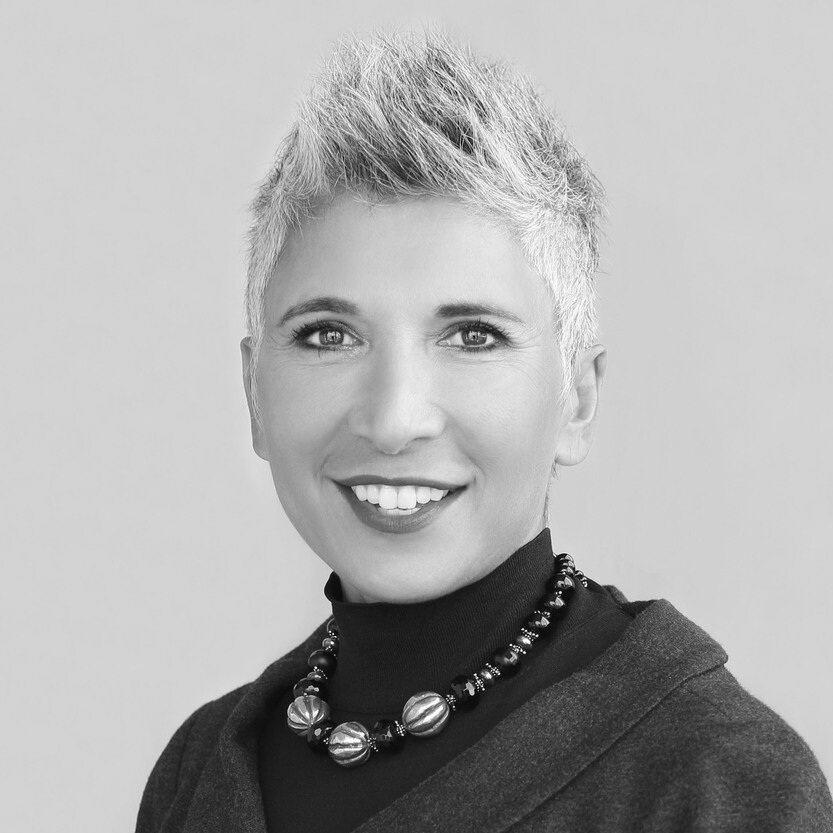Consuming ‘stuff’ is unsustainable. Will consuming ‘experiences’ get us to sustainable development?
Dr. Tima Bansal is Founder of the Network for Business Sustainability.
I often wonder what sustainable development looks like, given that businesses are wired for profitability and growth. People keep consuming more stuff, even though the planet has reached its biophysical limits to growth.
Last month, I argued that the circular economy could transition us towards sustainable development. I appreciated thoughtful messages from readers who asked me to elaborate, which I will in a future post.
The Rise of the Experience Economy
But, for now, I want to suggest an alternative approach to sustainable development. David Hardisty, a marketing professor at the University of British Columbia, argued that the experience economy could also be a vision of sustainable development. He gave me pause. I’d value your thoughts on this assertion, but in the meantime, I’m offering my own.
Economists argue that people, especially in developed countries, are increasingly seeking experiences, such as cool vacations and time with family and friends. As people become wealthier, they become more interested in experiences than in acquiring stuff. Having met basic needs, they look for interesting ways to pass their time. The pursuit of experiences is replacing the acquiring of stuff.

I see traces of the experience economy everywhere. The Marie Kondo movement has motivated people to find “joy” from removing unneeded stuff. Even my hairdresser was offering joy by tidying my hair (see photo of her street sign).
The other day, I heard about Malibu Liquor — the producers of coconut-flavoured alcohol — selling their drink through experiences. Malibu’s bottles now contain a computer chip that will tell you the closest bar that offers Malibu cocktails. You can even follow their “summer games” on social media.
Why the Experience Economy May Be a Path to Sustainable Development
The experience economy could advance sustainable development because experiences generally have a smaller environmental footprint than does stuff. It’s better to buy your father a day at the golf course than golf clubs. Experiences are also social, involving time with family and friends, which increases feelings of self worth and builds community.
The argument seems straight forward. But, there is a catch.
Social Comparison Drives the Consumption of Stuff
Why do people buy so much stuff?
Well, the obvious reason is that people need stuff to survive, such as food, clothes, and housing. But, people consume so much more stuff than what is needed to survive, especially in the developed world. I really do not needMalibu cocktails and all the dresses in my closet.
Much of the reason why I have all this stuff is because of social comparisons. I see others with stuff, so I want it too.
Researcher Leaf Van Boven showed the impact of social comparisons in a neat experiment. He offered his subjects two choices: (1) a salary of $50K with their colleagues’ receiving $25K, or (2) a salary of $100K and their colleagues’ receiving $200K. About 50 per cent of the subjects chose the first option. It’s not just that we want more, we want more than others.
Why I am Skeptical of the Experience Economy: Social Media
The experience economy could drive sustainable development because people are less likely to compare their actions with those of others. It is harder to compare the time you spend with friends than it is to compare the model of car you drive.
However, social media commodifies experiences.
Social media provides a snapshot of peoples’ experiences, and those pictures can be compared. I was happy canoeing in Muskoka, until I saw my friend’s photos of yachting in Santorini. She out-Instagrammed me!
But, before long, I am flocking to Santorini along with everyone else that saw her post on Facebook. A recent New York Times article said that Santorini sunsets were “a magical moment — except for the thousand or so sweaty bodies packed on the narrow streets, arms extended to capture the perfect shot.” See the picture below, if you doubt me.

Even though experiences have a smaller footprint than does stuff, they still have some footprint. A trip to Santorini generates greenhouse gas emissions from flying and the excessive food and alcohol. And, as people geo-locate their experiences in remote paradises, fewer parts of the planet remain untouched. Just take a look at a recent picture of the congestion on Mt. Everest.
David Hardisty gave me reason to think about the experience economy as the pathway to sustainable development, but I remain unconvinced. I expect there is a way for the experience economy to move us towards sustainable development. I’m just not sure if that’s possible in an era of social media.
Continuing the conversation
I would appreciate hearing your reaction to the ongoing question of ‘what is business sustainability’. Please feel free to message me (@TimaBansal) or the NBS community (@NBSnet) privately or publicly.
More From Tima’s Desk
Dr. Tima Bansal, NBS’s Founder, regularly shares her observations about business sustainability. Click the button below to see the full series.




Add a Comment
This site uses User Verification plugin to reduce spam. See how your comment data is processed.This site uses User Verification plugin to reduce spam. See how your comment data is processed.